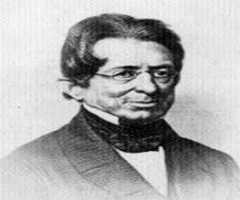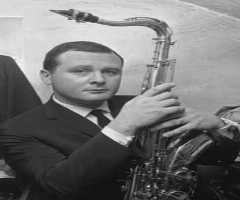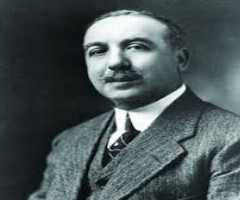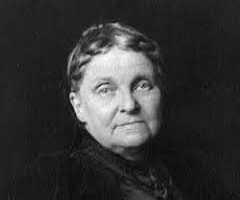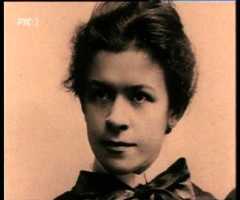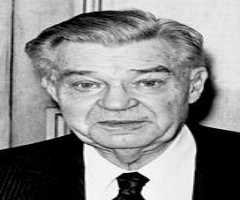
Also Known For : Football Player
Birth Place : New Salem-Buffington, Pennsylvania, United states of America
Died On : May 18, 1963
Zodiac Sign : Sagittarius
Chinese Zodiac : Rabbit
Birth Element : Earth
Ernie Davis Biography, Life, Interesting Facts
American athlete and football player Ernest Davis was born on December 14, 1939, in New Salem, Pennsylvania, United States of America. His father was killed in an unfortunate automobile accident before his birth. His mother Avis Marie Davis Fleming was in immediate need of a job after the tragic demise of her husband and was unable to raise Ernie all alone.
She handed over the custody of her son to his maternal grandparents when Ernie was only 14-months-old. Ernie grew up in Uniontown, Pennsylvania under the care of his grandparents Willie and Elizabeth Davis. He had a problem of stammering growing up. However, with proper and adequate care of his grandparents, he was able to overcome the problem.
They also made him realize the merit of leading a disciplined, family-oriented life which helped him in becoming a better person in due course of his life. He relocated to Elmira, New York, at age 12, to join his mother and stepfather. While studying in his grade school, he showed glimpses of his talent and excelled at playing basketball, football and baseball.
Ernest Davis also exhibited his excellent skill in athletics during the same time. He earned high school All-American honors in basketball and football. He led his school basketball team to a startling feat of 52 consecutive victories and people felt that Davis was best equipped for the particular game of basketball. However, his first love and passion lied in football.
Around thirty college recruitment teams approached him to join them after having assessed the potential of Ernie in playing either football or basketball. It was Jim Brown, a Syracuse University alumnus, also a childhood hero of Ernie, who finally succeeded in persuading him to realize that Syracuse University will be the best grooming place for a young black athlete like him.
Ernest Davis joined the university after completion of his high school education at Elmira Free Academy. As per the Syracuse University rules freshmen were not allowed to play for the university team in their freshman year. As a result, Ernie had to remain content with the practice sessions during his first year and he utilized the sessions to the hilt, dominating it with his power, speed and accurate passes.
Football Career
Ernest Davis played for the junior varsity team of the Elmira Free Academy during his grade school days and injured himself by breaking his wrist in the very first game. He played Basketball during his injury lay-off period and excelled in that sport too. In 1955, he played as a defensive midfielder in his varsity team and won the Conference championship for his team.
In 1956, his team won another league title. He played the season as a halfback as per the instructions of his coach. The “Blue Devils” football team of Elmira Free Academy won the third consecutive Conference Championship in 1957 where Ernie played thirteen games as a halfback. He established a school record of 138 career points on1 tou 2chdowns along with 12 place kicks in that year.
After spending his freshman year on the sidelines practicing hard, Ernie made his mark in 1959, winning the 1959 national championship for Syracuse University, remaining undefeated with an 11-0 all win record. In the 1960 Cotton Bowl Classic, he led his team to a 23-14 win over Texas Longhorns, the University of Texas team.
Ernest Davis was conferred the title of the ‘Most Valuable Player’ for his excellent contribution to the winning cause of the Syracuse Orangemen. He was nicknamed ‘The Elmira Express’ by Al Mallette, the sports writer of Elmira Star-Gazette. In 1961, the Syracuse Orangemen finished the season with an 8-3 win-loss record capping it with a final assault over the Miami Hurricanes in the Liberty Bowl.
The scoreline read 15-14. The game was played at Philadelphia's Franklin Field with the prevailing restricted college football substitution rules of that era where footballers played both defensive and offensive football according to the scope of play.
As a black athlete, Ernest Davis had to face the trauma of racial discrimination during the hay days of his football career. In 1960, he happened to visit the city of Dallas, down south of America in the district of Texas.
He was to collect the ‘Most Valuable Player’ award after the game against the University of Texas. He was asked to immediately vacate the segregated facility after collecting the award and finishing his meal at the banquet prior to the opening of the doors to the public for participating in dance.
Besides his MVP title, he was named All-American in both his junior and senior year at the university. He was the first African-American to be awarded the Heisman Trophy as the Most Outstanding Player of American College Football in 1961.
Ernest Davis was the first overall pick of the 1962 National Football League draft, the first black athlete to be picked as number one ever in NFL draft. He was selected by the Washington Redskins and was traded to the Cleveland Browns. In December 1961, he signed a three-year contract with the Cleveland Browns for an amount of $200000.
Personal Life And Legacy
In July 1962, Ernest Davis was diagnosed with acute monocytic leukemia while he was preparing for the College All-Star Game. His treatment began immediately with an optimistic expectation of recovery sooner than later. The cancer symptoms subsided as well. However, the Cleveland coach Paul Brown did not field him in any match due to the apprehension of any deterioration in his health and kept him in the reserves.
However, the incurable disease reared its ugly head once again and Ernest Davis breathed his last on May 18, 1963, succumbing to its deadly assault at a very early age of 23. With his unfortunate and premature demise, the world lost a most talented and promising sportsperson who ironically could never play a single game in the professional football league prior to his death.







